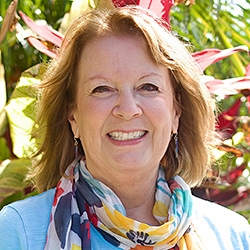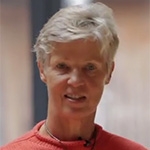

NVC Resources on Relationships
-
Miki responds to a participant’s question concerning fear of consequences when speaking with a manager at work. In this excerpt, she delves into the topic of choosing to inhabit nonviolence in the workplace, affirming that fear and nonviolence are incompatible, and that nonviolence is a powerful alternative to our habitual Fight, Flight, Freeze responses.
-
Jeff Brown shows how to bring NVC to your workplace by starting with inner awareness.
-
What if you work in construction or someplace that you are concerned would not to be open to bringing in Nonviolent Communication(NVC)? The answer depends on what you mean when you say, "Bring NVC into business."
-
Interested in bringing NVC consciousness to your workplace, but want to use a natural and conversational way of speaking? Listen in as Jeff describes three specific skills you can apply immediately: #1: How to express your understanding of a co-worker’s needs; #2: How to apply the three dimensions of needs in a business setting; and #3: How to make a Symbiotic Request that acknowledges holding multiple needs.
-
Want to expand your needs vocabulary, and build your capacity to identify needs — even when you’ve been triggered? Check out Mary’s powerful teaching on Self-Empathy.
-
CNVC Certified Trainer Miki Kashtan shares how Marshall Rosenberg helped her see how unacknowledged fear can be misinterpreted as aggression and offers an elegant and simple strategy for changing this dynamic.
-
Many of us check our full selves at the door when entering our workplace. Would you like to learn how to apply NVC principles at work instead? In this session, Jeff details how you can step into greater authenticity at work!
-
In October 2018, CNVC Certified Trainer Gitta Zimmerman held her 6th international workshop for people working with children in Ruhpolding, Germany. This workshop video offers NVC learning games, complete with instructions!
-
When building successful relationships, it can be very helpful to see yourself as a collection of different inner parts that developed due to various life experiences. Without empathy and acknowledgment, our inner parts tend to work against us. That's when we're called upon to build and develop our inner leadership...
-
In life, relationships, and organizations, authenticity is the bedrock of effectiveness. It can give rise to effective dialogues, information flow, intimacy, accountability, decision making and follow through. NVC can give us more tools to live with rigor around our authenticity...

Quick Links
Subscription Preferences
Stay In Touch!
Looking for ways to keep up with NVC Academy news, get special offers, free resources, or words of inspiration? Here are five ways to stay engaged:










